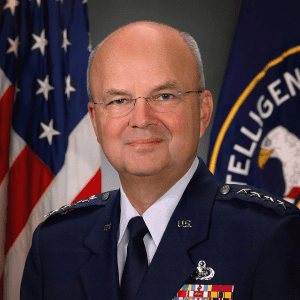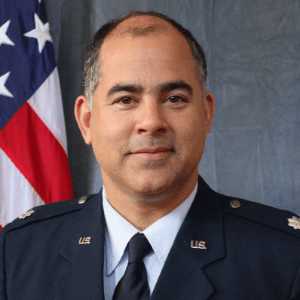When in American history have we had habeas hearings for enemy combatants? John Donvan: David? David Frakt: I think we need to be very clear about who we’re talking about and define who we’re referring to when we’re talking about terrorists because from our perspective, we are not talking about people who were actually captured on a battlefield in Iraq and Afghanistan. There is no doubt that there is in fact an armed conflict going on in those places. And as a military attorney, as a judge advocate, certainly I acknowledge that under the laws of war, we do have the power to detain and remove from the battlefield people who are engaged in active conflict. The problem is that the war has been defined in such amorphous terms that there’s a claim of a global battlefield, including the United States, and that anyone who essentially is against America, and mostly we’re talking about — their focus is on Islamic terrorists — are enemy combatants. So a Major Hassan is a terrorist. But really, he’s a criminal. People — if you are in the United States, and you attempt to commit a crime, the United States really is not a battlefield. I reject that. And even if it you think it is, the Constitution does apply here. So there is a limited group of people that, yes, if it’s in an active war in a theater of war that they can be captured and removed from the battlefield. But the solution — we have captured a lot of people. We do not screen them well. We sent people who were brought in for ransom without, you know, any back checking, fact checking, and packed them off to Guantanamo. And that’s something that’s unprecedented in American history. John Donvan: Let me get Marc Thiessen into it. Marc Thiessen: I’d like to — I’m not a lawyer. You have an advantage over us. But I’d like to enter some documents into evidence, right? The inaugural address of Barack Obama. David Frakt: Objection Marc Thiessen: Our nation is at war – David Frakt: Hearsay [laughter] Marc Thiessen: That is a true statement. Marc Thiessen: The inaugural address of Barack Obama, our nation is at war against a far-reaching network of violence and hatred. Please pass that to the other side. [Passing papers to John Donvan] [laughter] Marc Thiessen: Congressional authorization of use of military force passed by the House of Representatives 420 to 1, Senate 98 to nothing. We are at war. Supreme Court of the United States in the Hamdi decision. We are at war, we can hold [unintelligible] people captured in the war as enemy combatants. And, my final piece of evidence, Osama bin Laden’s fatwa, which is entitled: “Declaration of War Against the Americans.” What part of war do you not understand? We are at war. The president, the Congress, the Supreme Court and the enemy all think we’re at war, and you do not. John Donvan: Stephen Jones Stephen Jones: Well I suppose the problem that I have, Marc, is that I’m old enough to remember when Lyndon Johnson said we were at war with Vietnam and the legacy and the things that were done in the name of the declaration of war which was nonexistent. I regret to say that I’m old enough to remember what one of the presidents of my own party did in the name of national security in Watergate and when he tried to use the CIA and the FBI in the name of national security. I remember what happened in Iran Contra. And I remember the efforts made to assassinate Patrice Lumumba, and Premier Castro, Dr. Castro, and how that backlashed in this country, and I’m sorry. The powers of the federal government in the last 50 years destroyed any credibility when we were asked to believe people in power because frequently they know no more than what we can read in the Economist or the New York Times. Now, that information may be subject to different interpretation. But General Hayden talked about when in history have we had habeas for enemy combatants. General, your argument is not with me; it’s with the Supreme Court, the majority of whom my presidents appointed. And they brought the argument three times that these people are entitled to habeas review. And if we look at our history, those things that we thought were good in a time of war because the national interest compelled it were wrong. And there is no greater example of that than the internment of 200,000 Japanese on the West Coast in World War II because we thought our national security required that we round them up, take them out of their homes and put them in detention camp because they had attacked Pearl Harbor. At least their Imperial Navy did. [Applause] John Donvan: All of which, at least I want to say to the other side, all of which at least go to the issue of violation of core US values that we say define us. Your opponents are saying, essentially, and I think they used the word “un-American.” That your position is so at odds with what we value, including, equal protection under the law. That what you’re doing is un-American. Can you respond to that? Marc Thiessen: Well I will tell you something about that, Stephen mentioned American history. John Donvan: No no, I want the answer to his question. Marc Thiessen: No, I’m answering his question. Since the Revolutionary War, the United Stateshas held over 5 million enemy combatants. Until the war on terror, not one of them was given habeas corpus rights to petition their detention. The Geneva Convention, which regulates the conduct of war, nowhere in there does it say that you have a right to contest your detention in a war. My mother is here. And my mother was a prisoner of war. She fought in the Warsaw uprising in Poland against the Nazis. She threw Molotov cocktails at German soldiers. And she was taken into a prisoner of war camp in Germany that would make Guantanamo look like the Four Seasons. And she was not given the right to petition. David Frakt: You would be referring to the Geneva Conventions that the Bush administration said did not apply. Marc Thiessen: Excuse me. Yes. Well this is the point. You want to give Geneva Convention rights to terrorists. Well you don’t even want to give them Geneva Convention rights because you don’t accept that it’s a war. But to take the argument to argument. My mother followed the laws of war. She was in an army that carried its weapons openly, that did not target civilians, that wore uniforms or distinctive insignia. Terrorists do none of those things; they violate all of the rules of war, and so you want to get more rights — if I understand your position you want to get more rights to people who violate the laws of war, than rights to the people like my mother who followed the laws of war never had. John Donvan: It’s not that we don’t trust you, but I want to check all this with your mother. [laughter] Is she here? Can you stand up for just a moment? [applause] John Donvan: Is it all true? Is it all true, everything he says? [Marc’s mother says yes from the audience.] Are you proud of Marc? [laughter] Male Speaker: [unintelligible] John Donvan: David Frakt [laughter] David Frakt: It’s ironic that I’m being accused of not understanding war. I have been awarded Global War on Terrorism Expeditionary Service Medal, two National Defense Service Medals, I understand that we are at war. My objection is to the conduct of that war in the way that we have particularly domestically, are operating and, yes, and I have freely acknowledged that we can detain combatants on the battlefield. Where there is a question about whether they’re — what their status is, then they’re entitled to a hearing under the Geneva Conventions. At a minimum, they are entitled — all persons are entitled to humane treatment. And this is what we got away from in the early years of the Bush administration until the Supreme Court over time reigned in these abuses. But these are the abuses that they would like to get back to. And I think, Marc suggested that we want to broaden and expand rights, and you know actually that’s not such a bad thing. Over time history marches forward and human rights are expanded. And sometimes we extend those rights even to people whom we despise. John Donvan: Actually, I’d like to hear from Michael Hayden. Michael Hayden: David, we both served in the Air Force and I commend you for your service but it’s unfair to make that — again, if you want to talk about what was done in terms of interrogation, again, it’s a separate debate. This is a legal concept. Which of the equally valued legal systems do we want to use? Domestic criminal law, or the laws of armed conflict? I think we have the right as a nation to use the laws of armed conflict because we were attacked by an opposing armed enemy force. And Stephen, I have to say, you have a broad suspicion of government, and you went back to Vietnam, and Gulf of Tonkin, and I think the historical record is quite clouded whether or not the Turner Joy was fired on by North Korean patrol craft. I don’t think that there is any dispute that we were attacked in New York City and in Washington. [applause] John Donvan: Stephen Jones to respond. Stephen Jones: I concede that point, but it’s not the historical accuracy of the initiating incident that’s at issue. It’s what we do about the incident after it’s happened. John Donvan: I’d like to go to the audience for your questions now. And the way this will work, if you raise your hand, my system tends to be geographical, I start on the left and move to the right. A microphone will be brought to you. When the mic reaches you, if you could, stand up and hold it about this far away so the radio and television audience can hear you, we appreciate it, if you’re a member of the news media we’d appreciate it if you’d just identify yourself and I just need to shade my eyes for a moment, to see. Okay, on the far side in the dark shirt. Again I urge you to ask a real question and to keep it terse and you’re not here to debate the debaters, you’re here to help them to debate with each other. Thank you. Male Speaker: Yes, I think that something has been left somewhat clouded in the discussion, and that is that we’ve debated here and heard a lot pro and con of whether they should be treated—captured and the way that they’re treated as criminals versus enemy combatants. What I haven’t heard is a clear definition of what the treatment should be when it is declared that they are enemy combatants. In other words are we looking at recourse under military commissions? Are we looking at a suspension of some of those concerns because of national security? I think for a lot of people, we’re uneasy as to the definition behind enemy combatant and the set of prerogatives that would set in if that were to prevail, and we are leaving an open mind on that. So perhaps people can clarify that for us? John Donvan: Thank you. Marc Thiessen, I’d like to go to Marc because you just wrote a whole book about this. Marc Thiessen: Enemy combatants – when you capture someone who’s a member of Al Qaeda or the Taliban or is carrying, for example who tries to set his underwear on fire on a Detroit airplane and blow up a plane over Detroit that could’ve killed hundreds of people – our position is that that’s an enemy combatant. And that person, when you take him into custody, the first words out of your mouth are not, you have the right to remain silent. Because this is the problem with the difference between our approaches and practice, is that they believe, because they are lawyers and this is the world they live in, that the purpose of interrogation is to obtain evidence for a criminal trial. The criminal trial is a third order of interest for those who are involved with protecting the country. The first job is to get intelligence to stop another terrorist attack. So when, for example, the Christmas Day bomber is questioned for 50 minutes and then told he has the right to remain silent, you’re not going to get, even if he’s being incredibly cooperative, in 50 minutes you could not exhaust all the information. But the thing is that if you were trying to — if you take the law enforcement approach to interrogation, patience is a virtue. You are trying to get evidence and you can take as much time as you want, build a relationship with the guy, you try to coerce them in an interview, try to co-opt them into giving you information, fool them into giving information. If you are trying to stop a terrorist attack, patience is deadly. This guy — when the Christmas Day bomber was captured, he was supposed to be vaporized on that plane. As soon as Al Qaeda found out that he was alive and in U.S. custody, they started covering his tracks. They started shutting down e-mail addresses, they started shutting down camps where he was training, they started hiding operatives who he knows about, they started hiding safe houses and closing them down. So he takes three weeks to do — and he’s even trained in interrogation resistance — to buy time and use the legal system in order to buy his [unintelligible] fellows on the outside time. We need to get that information quickly. David Frakt: Okay. I’d like to respond to that. John Donvan: I just wanted David Frakt to respond to this. Male Speaker: A little bit of an unclarity and that is that even after a lawyer is assigned, I believe that interrogation can proceed. Isn’t that correct? Marc Thiessen: But he doesn’t have to answer any questions. Once he has a lawyer, he’s not going to answer any questions. Male Speaker: I will tell you there were many people who did cooperate — Marc Thiessen: No, first of all, I will tell you who says this: Eric Holder. Eric Holder, after John Walker Lindh was captured in Afghanistan and brought over here, Eric Holder was being interviewed on CNN in 2002 and they said can they get tough with him in the interrogation and he said well he’s not going to tell you anything now that he has a lawyer and is in America. Stephen Jones: Speaking from experience, people with lawyers and confess all the time. They confess even though they’ve been given their Miranda rights. So maybe you think Osama bin Laden, to use the most extreme example, is not familiar with the rule of Miranda?



















JOIN THE CONVERSATION